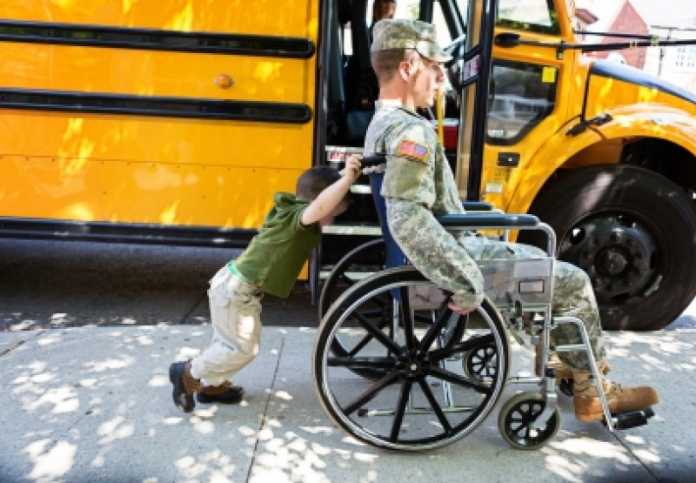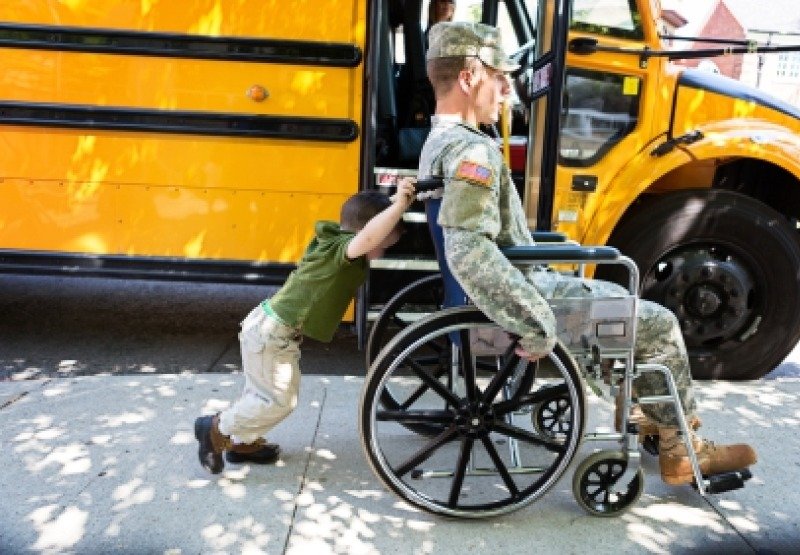There were around 20 million military veterans in the United States last year, with almost four million living with a service-connected disability.
There are a vast amount of organizations and a lot of help available to those that have been maimed, injured or traumatised as a result of active duty, but often navigating the services out there can be a minefield in itself.
Disabled Veterans In America
Disabled American Veterans (DAV) is an organization chartered by Congress for disabled military service men and women of the US armed forces, which aims to help them and their families through various means.
Provided by the Department of Veterans Affairs (VA), DAV currently has over 1.2 million members and is the longest running veterans’ advocacy and assistance group in America, providing free, professional assistance in areas such as representation and obtaining benefits.
There are a plethora of charities in the States that aim to support former troops, such as the Disabled Veterans National Foundation, which provides counseling to wounded service personnel to help navigate the complexities of seeking entitled benefits.
Veterans With Disabilities In The UK
According to the British Legion, the ex-service community is still a large and often overlooked section of the community by many in public life. The UK now has an updated package of support for those leaving the armed forces but there are still sizeable numbers of people who leave or have already left that find returning to civilian life very difficult, particularly if their time in service has resulted in a life-altering physical or mental trauma.
Veterans in the UK, unlike their counterparts in other parts of the world, receive no special treatment from the state in recognition of their contribution to defending their country.
Whilst the veterans minister, policy staff and the veterans agency provide services to war disablement pensioners and war widows, ex-service charities continue to play a crucial role in meeting the wider social and welfare needs of the serving and ex-service community.
Over half of the ex-service community have a long-term illness or disability, and over 20% have multiple conditions, which is a rate much higher than that of the general population.
British Veterans And The NHS
Veterans in Britain are entitled to a “lifelong duty of care”, with free priority National Health Service medical treatment in place since the early 1950s. However, the British Legion suggests that veterans and health professionals are lacking awareness of this and that priority is not being provided effectively.
Home Adaptations For Disabled Ex-Service Personnel
Disabled Facilities Grants (DFGs) are local authority administered grants in Britain for adaptations to homes to enable independent living for people with a disability. The money pays for items such as stairlifts, adapted showers and baths or kitchen modifications.
Many members of the ex-service community have a disability and a need to have their home adapted. However, the British Legion reports that it is “very common” for them to face long and unreasonable delays when using the DFG scheme, resulting in applicants waiting years for an essential adaptation to their home.
Ministry Of Defence And Veterans UK
Veterans UK is an agency of the Ministry of Defence (MOD) and is the only government-funded source of help and advice for former troops in Britain. Its website contains a lot of useful information for vets and their families, including on welfare support and other specialist support programmes with links to many other veterans organizations.
Veterans UK also runs a free helpline, which gives advice on many related topics. The Armed Forces Compensation Scheme exists for those injured, disabled or bereaved by service on or after April 6 2005.
The Future For Disabled Veterans
The Associated Press reports that the most recent veterans are the most medically and mentally troubled generation of ex-service people in history, with just under half of the 1.6 million former troops from the wars in Iraq and Afghanistan seeking compensation for injuries that they say are service-related. This is more than double the estimate of 21% who filed such claims after the Gulf War in the early 1990s.
The cost of caring for veterans rises for several decades after a war and peaks 30 to 40 years later. Harvard economist Linda Bilmes estimates the health care and disability costs of the recent wars to be $600 billion to $900 billion, expressing concern that there may be “no money set aside” for such a bill.
There are a multitude of avenues and services for disabled former troops to access on both sides of the pond, but wading through to find what is available can be a challenge in itself.
All content herein is owned by author exclusively. Expressed opinions are NOT necessarily the views of VNR, authors, affiliates, advertisers, sponsors, partners, technicians, or VT Network. Some content may be satirical in nature.
All images within are full responsibility of the author and NOT VNR.
Read Full Policy Notice - Comment Policy






























